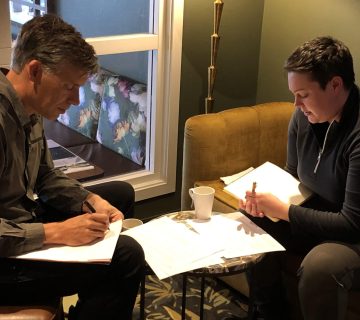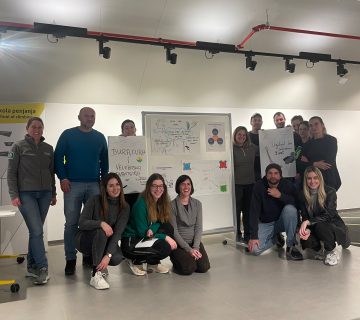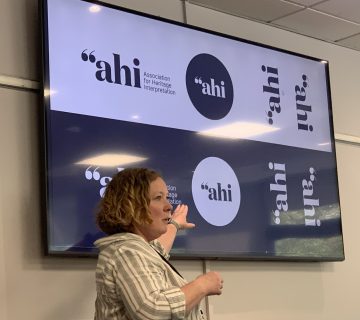Exploring our shared values and possibilities for heritage interpretation in the Balkans during training of the Balkan Museum Network Interpretation Working Group.
By the time you are reading this, I will probably have already finished the second of two two-day interpretation capacity building workshops. They have been organised by the Balkan Museum Network for museum and heritage professionals from six countries of the Balkans (Albania, Bosnia and Herzegovina, FYR Macedonia, Greece, Kosovo and Serbia).
‘The Balkan Museum Network exists to celebrate, preserve and share the complex common heritage of the western Balkans. It is based on mutual respect and guided by a commitment to professionalism and shared ethics.’ (www.bmuseums.net)
I was greatly honoured to be selected as a trainer and to lead the two workshops. It was also a great responsibility to do the best job that I can and take into account the joint history and troubles we share in our little corner of the world.
I always try to make my training a bit different. Experiences and knowledge I gained in my youth work and IE’s training courses are a great foundation to build on. But I always want to offer participants of my workshops something more, so I really dig deep into values, frames and universals this time. Because if we want to make heritage meaningful and accessible to as many visitors as possible, we have to leave politics, history, religion and nationality aside and try to find what we have in common instead of what separates us.
‘Name ten things we have in common’ is just one of the several exercises we did as part of the training, trying to get to the core of heritage interpretation. It is a basic team building/ice breaking activity, but it goes so much deeper than that. It highlights the basic needs and preferences of us, as humans. We all need to drink water, we all like animals, etc.
But what now? I made them think, which is the greatest compliment I can get as a trainer. But what now, where does my responsibility as a trainer end? We will approach that question in our next workshop in December, in the iconic city of Sarajevo. We will try to answer the question, What now? Is there a place/space for heritage interpretation in the Balkan region and where is that place/space, and how can they (we) fill it?
Janja is a Legend. Well she runs NGO Legends, works as a trainer, guide and consultant. She is also an IE certified trainer and a member of IE’s social media team. She is hooked to everything ‘e’ so you can write to her on: janja.sivec@dlegende.com.
To cite this article:
Sivec, Janja (2017) ‘Name ten things we have in common’. In Interpret Europe Newsletter 4-2017, 17.




